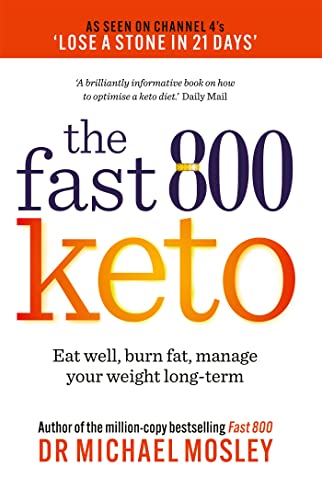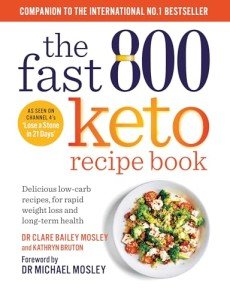The Safety of Keto Diet: Debunking Myths
The keto diet has gained substantial popularity in recent years, with many claiming it to be a miracle weight-loss solution. However, amidst the hype, several misconceptions and myths have been circulating, often causing confusion and skepticism regarding its safety. It is crucial to separate fact from fiction to truly understand the realities of the keto diet.
One common myth is that the keto diet starves the body of essential nutrients, leading to deficiencies.
In reality, a well-planned keto diet can provide all necessary nutrients through the consumption of various low-carb, high-fat foods. A balanced approach that includes a wide range of vegetables, healthy fats, and protein sources can adequately meet nutritional requirements.
Another misconception is that the keto diet leads to heart disease due to its association with high fat intake.
Myth 1: The keto diet is unhealthy due to its high fat content.
Fact: While the keto diet is indeed high in fat, it primarily focuses on healthy fats, such as avocados, nuts, and olive oil. These fats help supply energy to the body while keeping it in a state of ketosis, where it efficiently burns fat for fuel. However, it is important to avoid unhealthy trans fats and prioritize whole, unprocessed foods to maintain a healthy balance.
Studies have shown that the keto diet can actually improve heart health by lowering triglycerides, increasing good cholesterol (HDL), and reducing blood pressure. Nonetheless, like any diet, it is crucial to choose healthy sources of fats, such as avocados, nuts, and olive oil, rather than relying solely on processed or unhealthy fats.
Myth 2: The keto diet harms cardiovascular health.
Fact: Contrary to popular belief, many scientific studies have shown that the keto diet can improve heart health markers, such as reducing triglyceride levels and increasing the beneficial HDL cholesterol. However, as with any diet, proper implementation and consultation with a healthcare professional are crucial to achieving optimum results and minimizing potential risks.
Myth 3: The keto diet lacks essential nutrients.
Fact: Although the keto diet restricts carbohydrate intake, careful meal planning and nutrient-dense food choices can ensure the required intake of essential vitamins and minerals. To mitigate deficiencies, incorporating a wide range of non-starchy vegetables, lean protein sources, and healthy fats into the diet is pivotal. Additionally, considering appropriate supplementation under medical guidance can further support overall nutritional needs.
Lastly, some people express concerns about the keto diet impacting kidney function.
While it is true that excessive protein intake can strain the kidneys, a well-balanced keto diet does not necessarily require an excessive amount of protein. Adequate hydration and moderation are key to avoiding any negative impact on kidney function, making the keto diet safe for those with healthy kidneys.
Other Common Keto Misconceptions: Dispelling Myths for a Healthy Approach
1. Keto Diets Are All About Bacon and Butter:
While the keto diet encourages high-fat consumption, it's crucial to focus on consuming healthy fats. Olive oil, avocados, nuts, and seeds are excellent sources of beneficial fats that provide necessary nutrients. Relying solely on processed meats like bacon can be detrimental to health and lead to an imbalanced diet.
2. Keto Diets Mean No Vegetables:
Some people assume that the keto diet completely eliminates vegetables since they contain carbohydrates. However, vegetables are vital sources of fiber, vitamins, and minerals. While certain vegetables like potatoes or carrots may be restricted due to their higher carb content, low-carb options like leafy greens, cauliflower, and zucchini are highly encouraged on a keto diet.
3. Keto Diets Are Unsustainable:
A common misconception is that the keto diet is a short-term fad and not sustainable in the long run. However, when followed correctly and with proper nutrition knowledge, the keto diet can be sustainable and beneficial for many individuals. It's essential to seek guidance from a healthcare professional or a registered dietitian to ensure adequate nutrient intake and avoid any potential health risks.
A Closer Look at Real Risks and Benefits of the Keto Diet
The ketogenic diet, or keto diet, has gained popularity in recent years for its alleged ability to promote weight loss and improve overall health. However, concerns about its safety have also emerged, leading to several myths and misconceptions. In this article, we will examine the genuine risks and benefits of the keto diet to help separate fact from fiction.
The Benefits:
1. Weight Loss:
One of the primary reasons why people turn to the keto diet is its potential for weight loss. By significantly reducing carbohydrate intake and increasing the consumption of healthy fats, the body enters a state of ketosis. Ketosis is when the body's primary source of fuel shifts from carbohydrates to fats, causing it to burn stored fat more efficiently.
2. Improved Blood Sugar Control:
Research suggests that the keto diet may help individuals with diabetes or insulin resistance manage their blood sugar levels more effectively. By minimizing carb intake, the body requires less insulin to process glucose, potentially leading to improved insulin sensitivity and blood sugar control.
3. Increased Mental Clarity:
Some proponents claim that following a keto diet can enhance cognitive function and increase mental clarity. While more research is needed to fully understand this claim, it is believed that the steady supply of ketones to the brain can result in improved focus and mental performance.
The Risks:
1. Nutrient Deficiencies:
Since the keto diet restricts many food groups, such as grains, fruits, and some vegetables, it can be challenging to obtain essential vitamins, minerals, and fiber. Hence, it is crucial for individuals on a keto diet to carefully plan their meals to ensure they are meeting their nutritional needs.
2. Potential Kidney Stress:
The increased consumption of protein on a keto diet may put a strain on the kidneys, particularly in individuals with underlying kidney conditions. It is important to consult a healthcare professional before starting this diet, especially if you have any kidney concerns.
Some individuals worry that the keto diet may harm kidney function. However, this fear is largely unfounded. The diet is not associated with an increased risk of kidney disease in healthy people. Individuals with pre-existing kidney conditions should consult with their healthcare provider before starting any new diet, including the keto diet. It is important to note that adequate hydration and regular monitoring of kidney function are beneficial for overall health, regardless of the chosen dietary approach.
3. Adverse Side Effects:
Some people may experience short-term side effects when transitioning into ketosis, commonly known as the "keto flu." Symptoms may include fatigue, headaches, irritability, and constipation. However, these side effects are usually temporary and can be managed by staying well-hydrated and ensuring adequate electrolyte intake.
$17.62
4.98 out of 5 starsKeto Diet Book: Science-Based Guide for Fast Weight Loss
Discover the secrets to fast weight loss with this science-based guide to the Keto Diet
Product information
Product Review Score
Product links
















